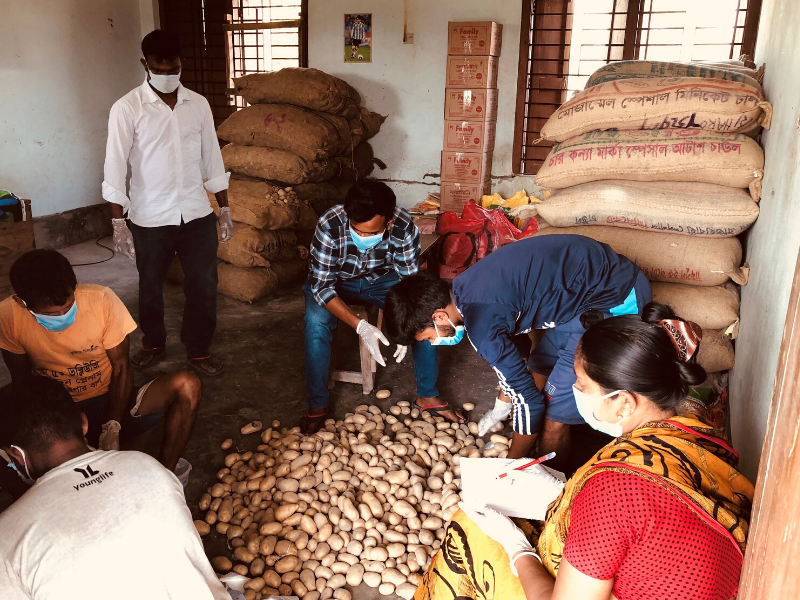Do you remember what you were doing January 17, just three months ago? Were you planning for what would happen if a global pandemic swept across the world, infecting millions and impacting the livelihood of billions?
It is amazing how much life has changed in such a short period of time. The countries of Asia-Pacific Area — with a combined population of over 4 billion people — are no exception. Millions of people’s lives have been changed by COVID-19.
On April 1, I gathered on Zoom with a group of national leaders of The Wesleyan Church in Asia to discuss how COVID-19 was affecting each of our countries. Leaders on the call from India, Sri Lanka, Bangladesh, Nepal and others all reported the devastating impact of the coronavirus in their areas.
These are countries that, by in large, do not get much international media coverage for reported illnesses and deaths from the virus itself. However, many of our church family members in these areas are day laborers. They work hard, but they do not have the consistent employment to which many people are accustomed. They cannot work remotely from home, and they do not have savings accounts at the bank.
As leader after leader shared, the pattern became clear: countries were implementing strict but necessary lockdowns to stop the spread, and as a result, many church members were left without any money. Their families could not get food. Starvation was becoming a real threat. And churches could not take care of their pastors, as members’ income was drastically affected.
Our Asian leaders expressed a desire not only to care for their church families, but also to meet the needs of their communities. What better opportunity to be the hands and feet of Jesus? But if only they had the resources.
As we reached the end of the call, we were all deeply moved by the needs shared. I wanted to be part of the solution, to be able to find funding to meet these needs. But as unemployment was rising and the stock market was falling in my own home country, I wasn’t sure what to do. I felt powerless. So, I ended the call by saying something like, “As we partner together as one global Church family, we would love to find some ways we can meet each other’s needs. People in my country are struggling too. I can’t guarantee we can help, but let’s keep sharing the needs with each other.”
One of the people on the call — we’ll call her Nancy — was from a creative-access country. (This is a country where Nancy cannot be open about her faith in Jesus.) It was her first time being part of one of our area meetings. She didn’t say much throughout the call. But after the call ended, she went back to her network of house churches and shared about the need. They decided they wanted to help their Christian brothers and sisters in other countries, and they officially began collecting funds for this purpose on April 6.
You can imagine my surprise, when, one week later, I received word that members of this house church network had given over $42,000 (in U.S. dollars) to support those in need in the surrounding countries!
They had given as the Macedonian Church gave nearly 2,000 years ago in response to a critical food need of their Judean sisters and brothers. Paul describes their gift in 2 Corinthians 8:1-5: “And now, brothers and sisters, we want you to know about the grace that God has given the Macedonian churches. In the midst of a very severe trial, their overflowing joy and their extreme poverty welled up in rich generosity. For I testify that they gave as much as they were able, and even beyond their ability. Entirely on their own, they urgently pleaded with us for the privilege of sharing in this service to the Lord’s people. And they exceeded our expectations: They gave themselves first of all to the Lord, and then by the will of God also to us.”
Many of us feel powerless in the face of this global health and economic crisis. Let us be inspired by the power of the Spirit displayed through this Asian house church network. And may we respond to those in need around us with such beautiful generosity.
Rev. Ben Ward is Asia-Pacific Area director and director of Development and Communication for Global Partners.

